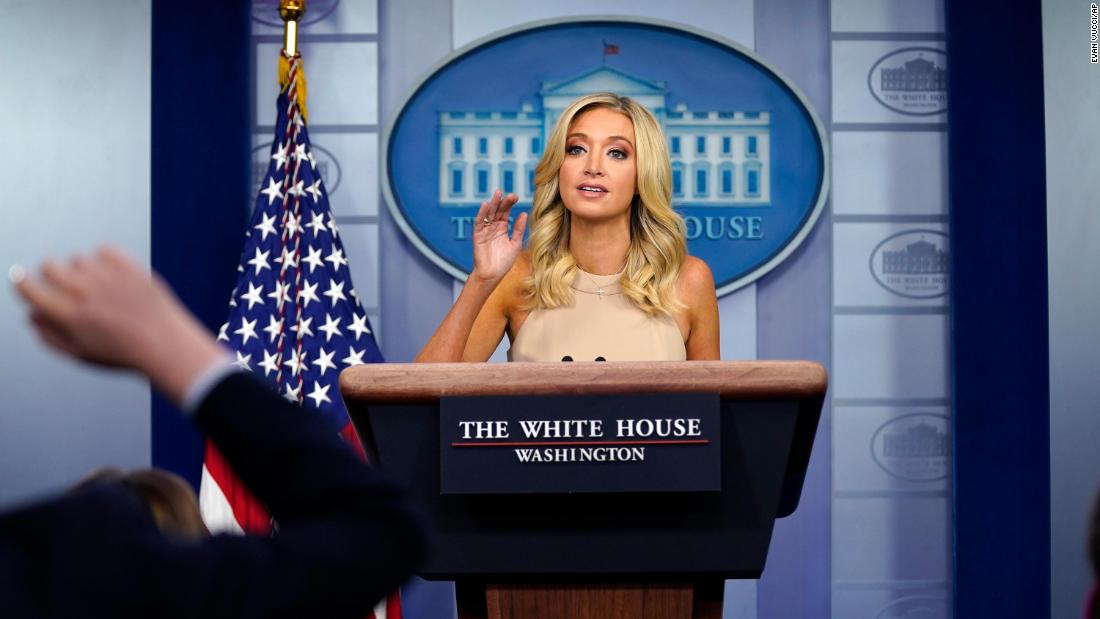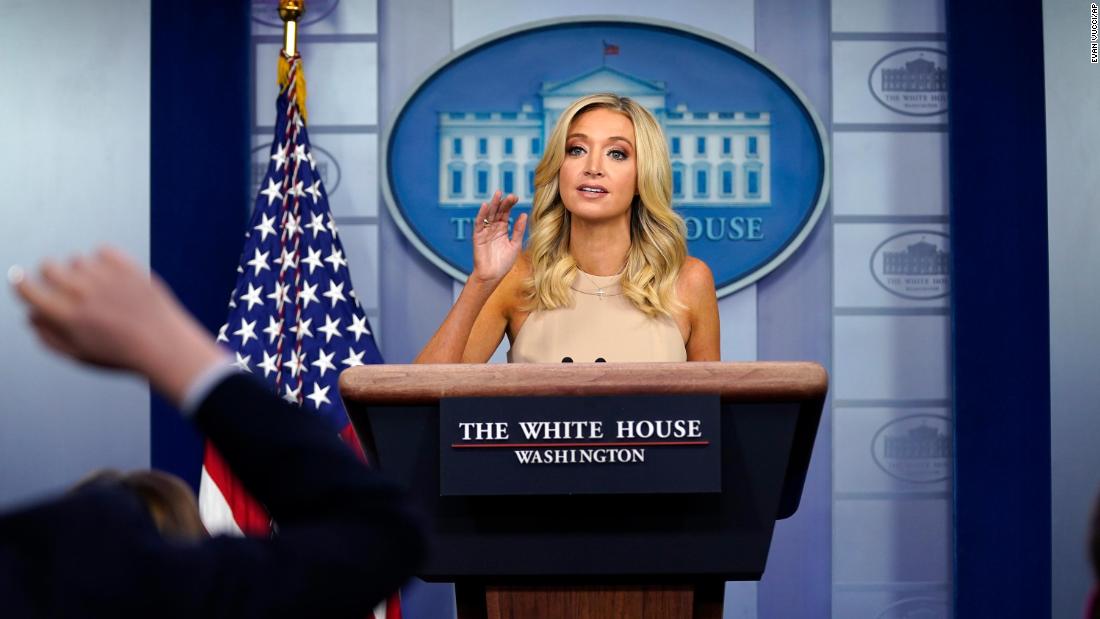[ad_1]

The White House has insisted the information was neither verified nor credible, and said it didn’t reach Trump because there was no consensus within the intelligence community about its veracity.
Trump is not known to fully or regularly read the PDB, something that is well-known within the White House. He is instead orally briefed two or three times a week by his intelligence officials.
Without confirming whether the information was included in the written document — something she claimed she would never “sit here and confirm or deny” — press secretary Kayleigh McEnany insisted Trump does read.
“The President does read and he also consumes intelligence verbally,” she said when questioned why Trump isn’t reading the PDB.
“This President, I will tell you, is the most informed person on planet Earth when it comes to the threats we face,” McEnany added, pointing to regular phone calls between Trump and his national security adviser Robert O’Brien. “He is constantly being informed and briefed on intelligence matters. But I’m not going to allow The New York Times to dictate when we give top-secret information and don’t give top-secret information.”
Secretary of Defense Mark Esper said in a statement Tuesday evening the Defense Department “has no corroborating evidence at this time to validate the recent allegations regarding malign activity by Russian personnel against US forces in Afghanistan.”
He added that “the Department takes very seriously any and all potential threats against U.S. military personnel.”
Tuesday’s briefing was the latest attempt to steer questions away from the intelligence — and Trump’s apparent lack of response — and toward the leaks that allowed the information to come to light. The White House has defended Trump’s handling of the matter but hasn’t said how he might punish Russia if the information is found to be true.
After briefing Republican and Democratic lawmakers on the matter this week, McEnany said Trump had been been updated as well. She had declined to make that announcement a day earlier.
“The President has been briefed on what is unfortunately in the public domain,” McEnany said. “He has been briefed, but that does not change the fact that there is no consensus on this intelligence that still has yet to be verified.”
“The idea that somehow he didn’t know or isn’t being briefed, it is a dereliction of duty if that is the case,” the former vice president said during an event at a high school in Wilmington, Delaware. “If he was briefed and nothing was done about this, that’s a dereliction of duty,”
Despite McEnany’s claims, multiple officials have told CNN that Trump is not an avid consumer of the PDB, the highly classified written document prepared before dawn by intelligence analysts that is meant to provide the commander in chief with an update on global issues.
Even after intelligence analysts added more photos and charts to appeal to Trump’s learning style, the document often went unread, according to people familiar with the matter.
Instead, Trump prefers an oral briefing a few times a week. But even in those sessions, participants have described the President as occasionally distracted by whatever is bothering him that day, which often includes a negative cable news segment or newspaper article, causing his intelligence briefings to be derailed.
A former senior administration official who was part of the team that delivered Trump’s intelligence briefings said the President typically relies on a graphic-driven summation of current threats accompanied by an oral briefing, instead of reading through the material compiled by national security aides.
“He processes things by discussing them,” the official said. “So the presentation of the PDB has been tailored to that. The briefers will always want to get key points across. But he drives discussion how he wants.”
The official said Trump often complained about the information presented to him at the briefings, preferring to have potential solutions to national security threats offered to him rather than just the problems.
“He’s typically frustrated with intelligence because it shows a problem but doesn’t provide an answer,” the official said.
[ad_2]
Source link

